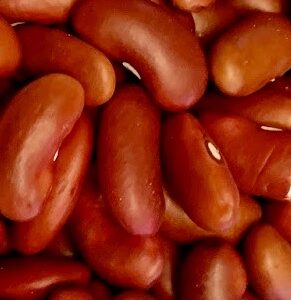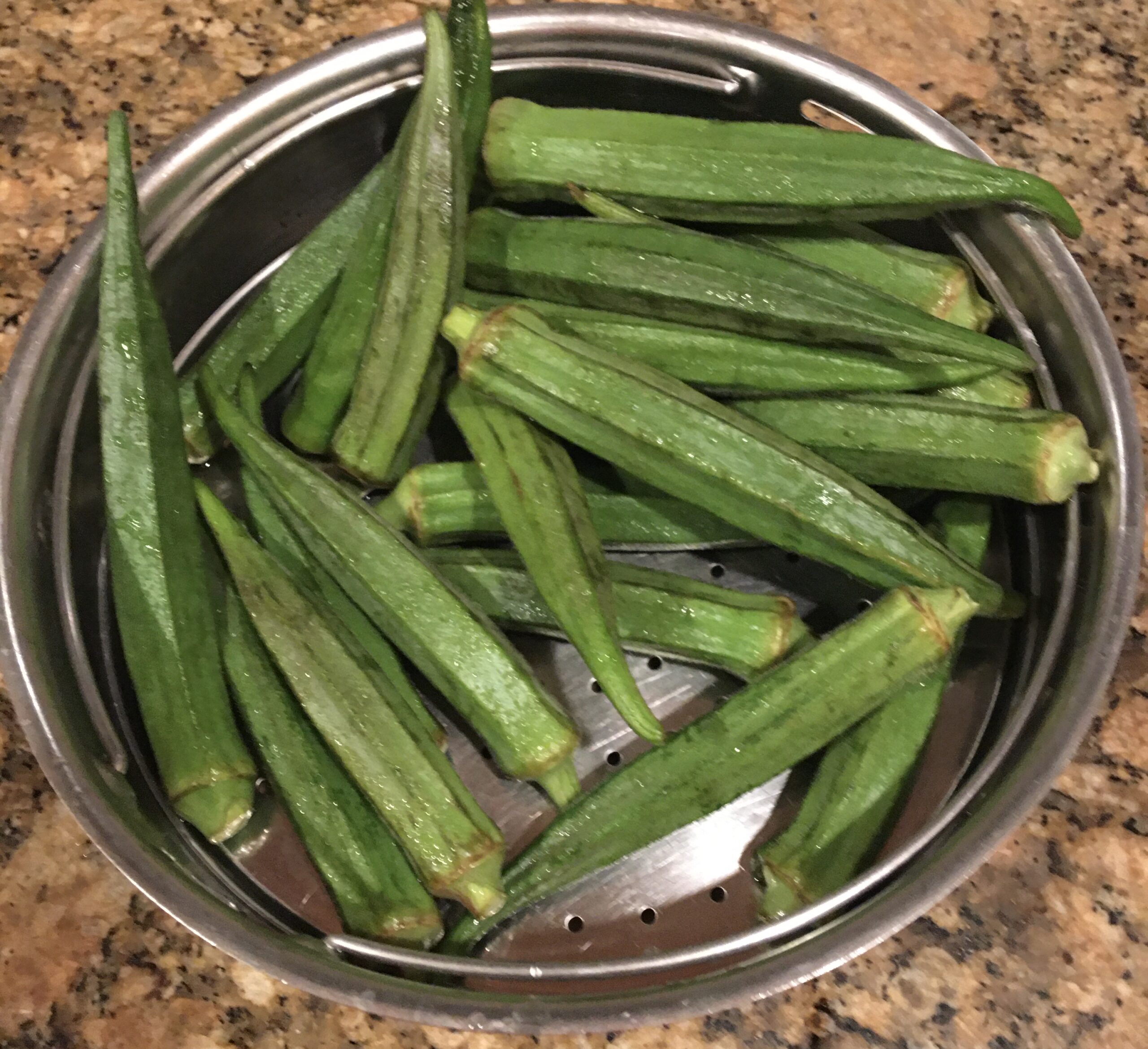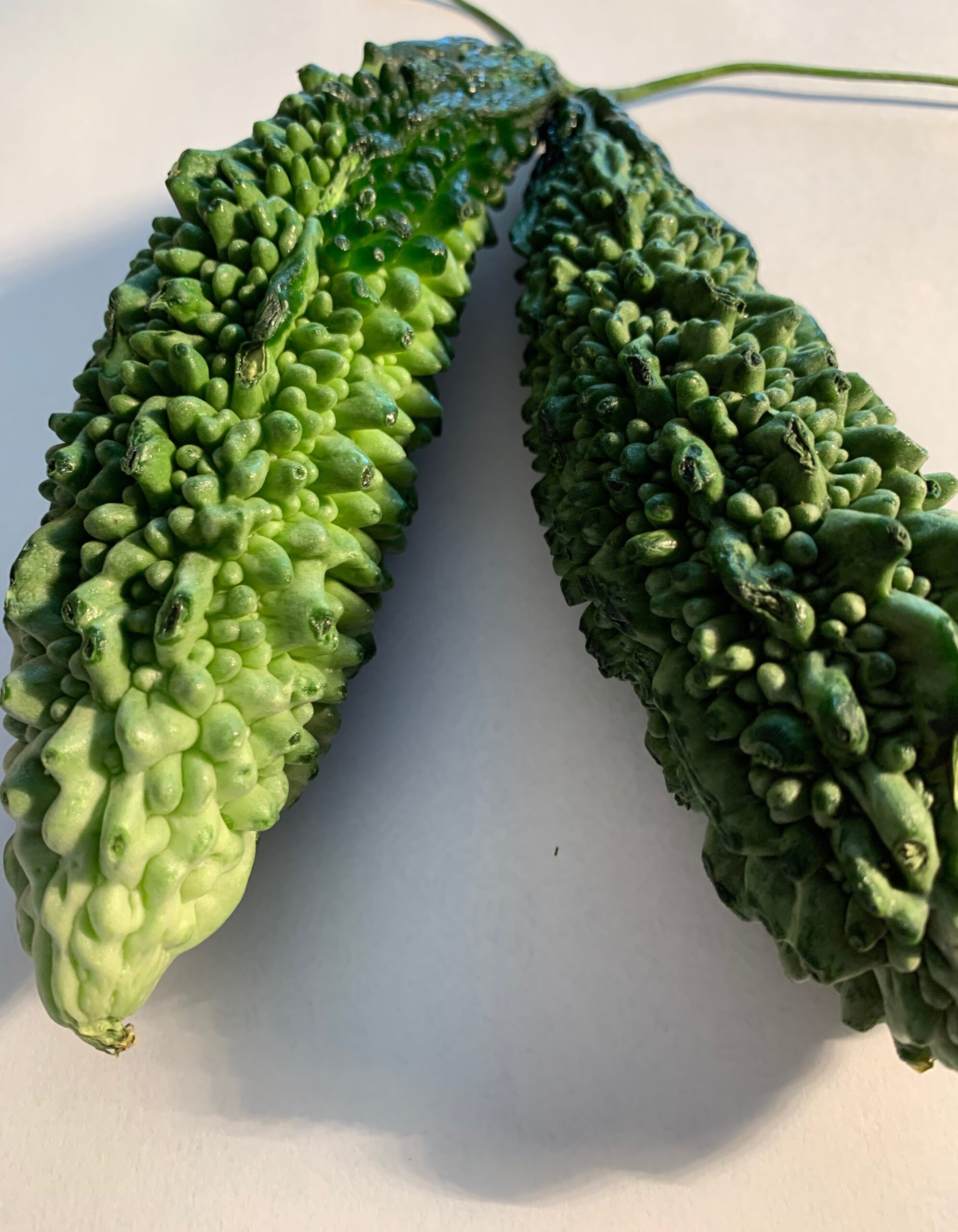Kidney beans(scientific name- Phaseolus vulgaris), are firm medium size beans with dark red skin and a cream color flesh. They are Superfood packed with protein, fiber, folate (vitamin B9). Magnesium, Potassium & other nutrients. Fiber and Folate promote cardiovascular health. Rajmah beans are supercharged with ant-oxidants, have anti-aging properties & contain more flavonoids (pro-anthocyanidins) than blueberries, cranberries & small red beans. Beans grow in a variety of colors – white, cream, black, purple, & spotted variants.
In this recipe, beans are soaked, cooked on stove or pressure cooker and simmered with spices in an onion tomato sauce. This dish resembles “Chili” and makes a balanced meal when eaten with any carbohydrates like Quinoa, brown rice, multigrain bread or wholegrain pasta.
History: Kidney beans are thought to have originated from Peru S. America. They are a part of a group called common beans which were cultivated as early as 8000 years ago. Common beans were spread by migrating tribes and served as an important protein source in the diets of the Indians of the Americas. Grown in colonial America, kidney beans were cultivated by Acadian farmers in Louisianna in the late1700s and planted by Spanish settlers. Haitians emigrating to New Orleans in the late 1700s brought spicy Caribbean recipes for beans and rice. Enslaved African plantation workers along the Mississippi river also ate meals of spicy red beans and rice. People of New Orleans love the red bean and feel that they own it, but it is an ingredient in worldwide cuisines. Rajmah masala is a popular dish in North India. Puzhukku with small red beans and green bananas is popular in Kerala.
https://www.camelliabrand.com/about-the-bean/about.
Kidney Beans Nutrition Facts
| GI= 24; GL=9 | Minerals | Vitamins |
| Calories 124 (6%) | Calcium 66mg (7%) | VitaminC 1.2mg (2%) |
| Carb. 22.4 (7%) | Iron 3mg (17%) | Thiamin0.1 mg (2%) |
| Fiber 9.3g (37%) | Magnesium 48mg (12%) | Riboflavin0.1 mg (4%) |
| Protein 9.1g (18%) | Phosphorous 137 mg (14%) | Niacin 0.5 mg (3%) |
| Total Fat 0.1g (0%) | Potassium 419 mg (12%) | Vitamin B6 0.1mg (5%) |
| Sodium 4 mg (0%) | Folate 74 mcg (18%) | |
| Manganese 03 mg ( 14%) | Zinc 0.9 mg (6%) | Pantothenic acid 0.2 mg (2%) |
| Selenium 1.2 mvg (2%) | copper 0.3 mg (14%) | Vitamin B12 0 mg (0%) |
Read More https://nutritiondata.self.com/facts/legumes-and-legume-products/4300/2#ixzz6MFRk9yzn
Kidney Beans Health Benefits
- Kidney beans are the richest source of plant-based protein, an affordable alternative & referred to as “poor man’s meat”. 1 cup boiled kidney beans 177g contains 15g of protein 27% of total calories.
- Kidney beans help with Weight management: Kidney beans are high in protein and fiber & contain proteins that can reduce the digestion of starches (carbs). Cooked kidney beans contain a number of weightloss friendly components, making them an excellent addition to an effective weight loss diet. Many observational studies have linked bean consumption with a low risk of overweight and obesity. One trial in 30 obese men and women on a weight loss diet, found that eating beans 4 times per week for 2 months led to greater weight loss than a diet that excluded beans. Starch blockers extracted from white kidney beans have shown some potential as a weight loss supplement.
- Improved blood sugar control: Kidney beans, being rich in protein, fiber & slow-release carbs, are particularly effective at maintaining healthy levels of blood sugar when included with meals. They rank very low on
Glycemic index (GI 27 & GL 4.8 ) which means a rise in the blood sugar after eating is low and more gradual. Diabetic or not, adding beans to your diet may improve blood sugar balance, protect overall health & reduce the risk of many chronic diseases. - Colon cancer prevention Observational studies have linked legume consumption (including beans) with reduced risk of colon cancer which is supported by animal studies and test-tube experiments. Beans contain a variety of nutrients and fibers with potential anticancer effects. Fibers such as resistant starch and alpha galactosides, pass undigested down to the colon where they are fermented by friendly bacteria, resulting in the formation of short-chain fatty acids like butyrate that may improve colon health and cut the risk of colon cancer.
- Diabetic-friendly slow-release carbs in kidney beans: Starchy carbs are the main nutritional component of kidney beans that do not cause large spikes in blood sugar, making them suitable for diabetics. Kidney beans are composed of carbs known as starch (72% of total calorie content). Starch is made up of long chains of glucose called amylose and amylopectin. Beans have a high proportion of amylose (30-40%) compared to most other dietary sources of starch. Amylose is not as digestible as Amylopectin. Bean starch is a slow-release carbohydrate. Its digestion takes longer and it causes a lower and more gradual rise in blood sugar than other types of starch. In fact, bean starch has a more beneficial effect on blood sugar balance than many other high carb foods.
Safety Profile
- Raw kidney bean toxicity: contain high amounts of a toxic protein Phytohaemaglutinin. Soaking and cooking the beans eliminates most of the toxin, making kidney beans safe to eat. Before consumption, kidney beans should be soaked in water for at least 5 hours and boiled at 100C for 10 minutes. Cooking in a pressure cooker is best.
- Anti-nutrients in kidney beans – are substances that impair the absorption of minerals, proteins & carbs. They can be eliminated by soaking, fermenting and cooking the kidney beans. It contains proteins like lectins and protease inhibitors and Phaseolin that may cause an
allergic reaction in susceptible individuals. - Kidney beans may cause bloating, flatulence and diarrhea in some: Insoluble fibers called Alpha galactosides can be partially removed by soaking and sprouting the be
- https://www.verywellfit.com/kidney-beans-nutrition-facts-4582419
Spice & Herb Power
- Ginger paste: prevents cancer with compounds like gingerol which can prevent breast cancer. They have anti-inflammatory properties that help prevent carcinogenic activity in the colon to prevent colon cancer.
- Garlic paste: reduces cholesterol – raw garlic with allicin compound effectively prevents LDL cholesterol from oxidizing.
- Turmeric powder: improve management of metabolic syndrome (by helping improve insulin sensitivity and reduce blood pressure); help improve cholesterol levels;
- Red chili powder improves cognitive function by providing adequate amounts of oxygen and iron. It decreases the risk of dementia and Alzheimer’s disease.
- Coriander powder: Skincare the active ingredients in coriander are known to improve skin health by neutralizing the effects of free radicals and lowering the levels of oxidative stress which can prevent symptoms of eczema, psoriasis & Rosaceae.
- Cumin powder: is a good source of iron that helps in increasing hemoglobin levels, improving blood flow & promoting a healthy
Menstural cycle. - Fennel powder: improves brain function potassium present is an electrolyte facilitating electrical conduction through the body.it also acts as a vasodilator which means more oxygen reaches the brain for neural activity to work at optimal functionality.
- Curry powder: may help to prevent cancer– has anti-carcinogenic properties from Curcumin. which inhibits the growth of cancer cells. Research published a study in the Journal of Biochemistry in 2012 has shown that curcumin can help against glioblastomas (GMBS) brain cancer.
- Cilantro leaves: It provides 6748IU of Vitamin A/100g 225% of DV an important fat-soluble vitamin useful for maintenance of mucus and skin and healthy vision.
- Basil leaves: contain powerful antioxidants that are water-soluble flavonoids Rientin and Viceninare which can help protect the white blood cells and help fight free radical damage.
Method to cook Kidney Beans Rajmah
- Soak Rajmah beans with hot water in a bowl. (2 hrs.)
- Cook soaked beans in a saucepan with water on the stove. (20 min.)
- Alternately beans can be cooked in a pressure cooker or in the microwave.
- Peel the onion and chop finely; blanch tomatoes, peel skin & chop fine. (5 min.)
- *Heat the oil in a frying pan,
- Add onions, crushed garlic & ginger; sauté until the onions turn translucent. Add tomatoes, salt & spices. Sauté until the oil separates.
- Add cooked Rajmah beans, bring to a boil & allow to simmer. (5 min.)
- Remove from heat. Garnish with washed & chopped cilantro or basil leaves.
- InstaPot cooking:
- Sauté onions, tomatoes, salt & spices in oil; add kidney beans and 2 cups water. Cover with lid and heat until pressure builds up. Allow beans to cook for 10 min. Turn heat off; wait 10 min. to cool. Open the lid, mix the gravy well and garnish with herbs.
Serve Rajmah beans by itself as soup or with Quinoa, Rice, potato rolls, Parathas, Pooris, or Naans.
TIPS
Thicker gravy: Mix 1 tsp. gram flour /corn starch/ arrowroot powder by dissolving in 1 tbsp. warm water and add to beans during cooking.
For quick Rajmah: Use 1 can of red beans, tomato paste & frozen onions Follow from *Time Saver: Soak the beans 2 days before, drain water and freeze
Variation: Use this recipe to prepare Lima, White or Red Beans








